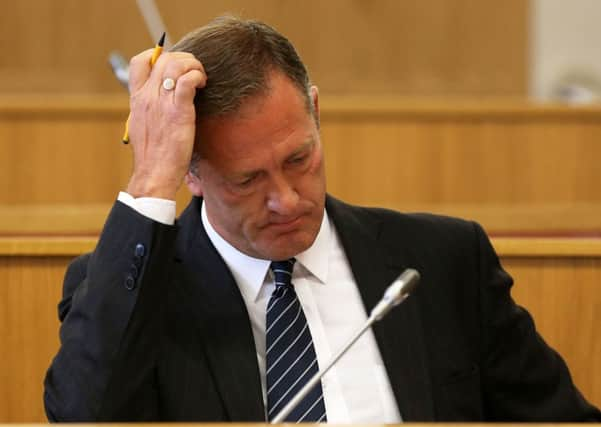Don’t go back to dark days of police panels, say crime tsars


Calls have been made to introduce new laws allowing police and crime commissioners to be recalled or sacked after South Yorkshire’s elected representative Shaun Wright hung on in his job for three weeks despite widespread pressure on him to quit.
Labour now says it will scrap PCCs altogether if it wins the General Election and return to a system more similar to that of the old police authorities, where a group of 17 local councillors and other representatives held chief constables to account.
Advertisement
Hide AdAdvertisement
Hide AdAt today’s Labour party conference, Shadow Home Secretary Yvette Cooper will claim 1,100 police jobs can be saved by increasing gun licences and axing the role of crime commissioners, who first took office in 2012.
The Association of Police and Crime Commissioners (APCC) has admitted that laws about the election and oversight of PCCs, who cannot be sacked, can be improved, and “is developing proposals for ensuring these issues are addressed”.
But chairman Nick Alston said: “It would be a backward step to return to the era of invisible, unelected police authorities during which so many failures of police leadership occurred without any meaningful oversight.”
North Yorkshire police commissioner Julia Mulligan says she is looking into the possibility that police and crime panels, who scrutinise PCCs, could recommend that a commissioner be sacked and that the Home Secretary would be able to carry this out.
Advertisement
Hide AdAdvertisement
Hide AdMrs Mulligan says she is working on possible law changes with other PCCs as part of a working group and will make a recommendation to the Government by the end of the year.
She said scrapping PCCs would be a “huge retrograde step” and claimed pressure to do this came from Labour councillors who “used to get paid quite a lot of money to sit on the police authority”.
She said: “I talk to members of the public all the time and...they really think it is a good change. Part of the problem is the way the whole thing came into being, the Government did a poor job explaining the policy.”
The cost of police and crime commissioner elections has been heavily criticised, with the recent vote to fill the vacant West Midlands role costing £3.7 million despite only ten per cent of the electorate voting.
Advertisement
Hide AdAdvertisement
Hide AdShaun Wright stepped down last week after the Alexis Jay report revealed the scale of child sex abuse in Rotherham, where he was lead councillor for children’s services for five years.
Humberside Police and Crime Commissioner Matthew Grove said millions could be saved by holding PCC votes alongside the General Election and local polls, but that his office was considerably cheaper than the former police authority.
He said: “Yvette Cooper is talking about handing this over to the local authorities. I find myself with a Police and Crime Panel that is controlled by the authorities. The last meeting I went to had to be held by a solicitor because they couldn’t agree what the relative membership should be between the relevant local authorities.
“What Labour is proposing is that we take that same mechanism of local authorities, who in many cases are at war with each other, and hand over the ability to govern policing to them.
“From my experience in this area it would be a disaster.”
Advertisement
Hide AdAdvertisement
Hide AdLabour’s PCC for West Yorkshire, Mark Burns-Williamson, says an elected figurehead should remain in place, but working with a deputy who was voted in on a joint ticket.
He said there were benefits to the PCC and police authority systems and suggested “something in the middle”, such as a smaller executive police board made up or five or six people with representatives from the districts.
But he said the changes “had to be tied into the wider debate” about how local policing could be delivered in austerity and whether powers should be devolved to local authorities after the Scottish referendum.